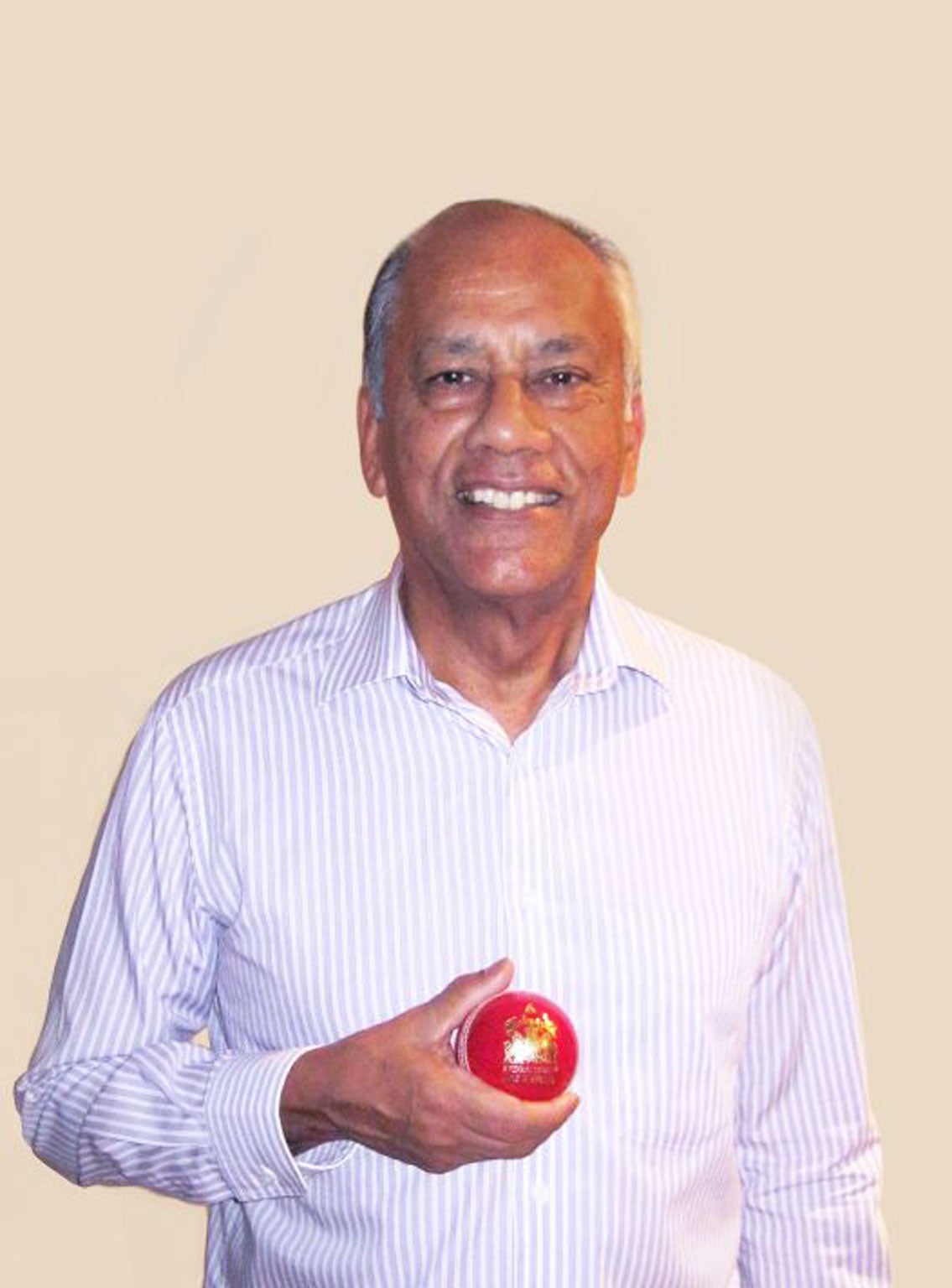Aussies get access to the swinging Duke as England's cricket ball is exported
England's oldest sports company has cracked the market Down Under

It may be over 250 years old but this morning, at Australia's most iconic cricket arena, English cricket ball manufacturer Dukes will celebrate an historic first. At the conclusion of the match between Victoria and Queensland in Australia's Ryobi's One-Day Cup, the crowd will be asked to remain in the ground while the Dukes ball makes its debut under the lights of the MCG.
Watching on will be a man who travelled to England from India in 1962 to train as an accountant, Dilip Jajodia. From the sidelines the endlessly ebullient Jajodia (right) will allow himself a smile, safe in the knowledge that this particular English invasion is finally under way.
"They're going to get the players out there bashing our coloured ball around under lights," he says. "The TV cameras will be there following the ball around and the crowd will be asked to stay behind and participate in the experiment. Hopefully it will be a reasonably scientific test."
The ball has been used in Australia's Futures League and in the country's under-17 and under-19 national competition this season.
It will also be used by Michael Clarke's men in a pre-Ashes preparation camp at Cricket Australia's centre of excellence in Brisbane as they look to get early sight ahead of the summer tour of the ball which has caused them so many problems on their two previous Ashes tours to England.
The feedback received so far suggests the ball is making its mark.
"I've met with Cricket Australia and they're really happy with the way the balls – both the red and the white have stacked," Jajodia says. "The shape has stayed good because the conditions are horrible – it's like bowling on bloody concrete out there.
"Generally they've been very impressed with how the balls have stood up – they're certainly not the bat-breakers indicated by our friends at Kookaburra."
That final comment betrays the barely concealed enmity between Dukes and the Australian company which has dominated cricket Down Under since it was formed in 1890.
Kookaburra currently enjoys a monopoly in the Australian ball market – Jajodia claims the company enjoys a 95% market share – but Dukes introduction does, he believes, have as much to do with basic economics as a desire from the authorities to give the country's cricketers maximum exposure to a ball which so many countries struggle against in English conditions.
"Kookaburra are effectively charging Aus$40 more for a ball in club cricket than we charge Premier League sides in this country," says Jajodia.
"Cricket Australia ran a roadshow where they went round the country asking the grassroots what changes were most needed. The two things that came up were the price of pitches and the cost of cricket balls. They've decided to do something about it.
"I've been knocking on doors for over 10 years. They normally disregard outsiders but, of course, we've got the Ashes credibility and we also supply the West Indies where the conditions are also tough."
Kookaburra has claimed that the decision to open the door to Dukes is a threat to their existence, despite the fact that the Australian company currently provide the white balls for English cricket's domestic 40 over and Twenty20 competitions.
With Dukes fine-tuning its own coloured ball that could soon change, but for Jadojia his biggest challenge is to provide a ball that will not only hold up in whatever conditions it's used in, but also offer a fair contest between bat and ball.
"What I have to keep in mind is what's good for cricket because I can easily produce a ball that the bowlers will love because I can give it a huge big seam which will move around and bounce like hell for 90 overs," he says. "The bowlers will say 'bloody hell I'll have a piece of that', but it's all about being fair and responsible."
Sean Cary, Cricket Australia's senior operations manager, told The Independent that the ball had stood up "extremely well" on its opening outing in Canberra before Christmas.
Although winning a potentially lucrative contract to supply balls for the Sheffield Shield might be, for the time being at least, beyond Dukes, this quintessentially English company could soon be supplying balls to the modern, brash Big Bash Twenty20 tournament.
But is Jajodia's incursion Down Under helping Australia's next generation of talent to thrive against one of England's most potent weapons?
"Certainly not", he says.
That's the kind of straight-batted approach that Australia would do well to copy against the Dukes this summer.
Join our commenting forum
Join thought-provoking conversations, follow other Independent readers and see their replies
Comments
Bookmark popover
Removed from bookmarks